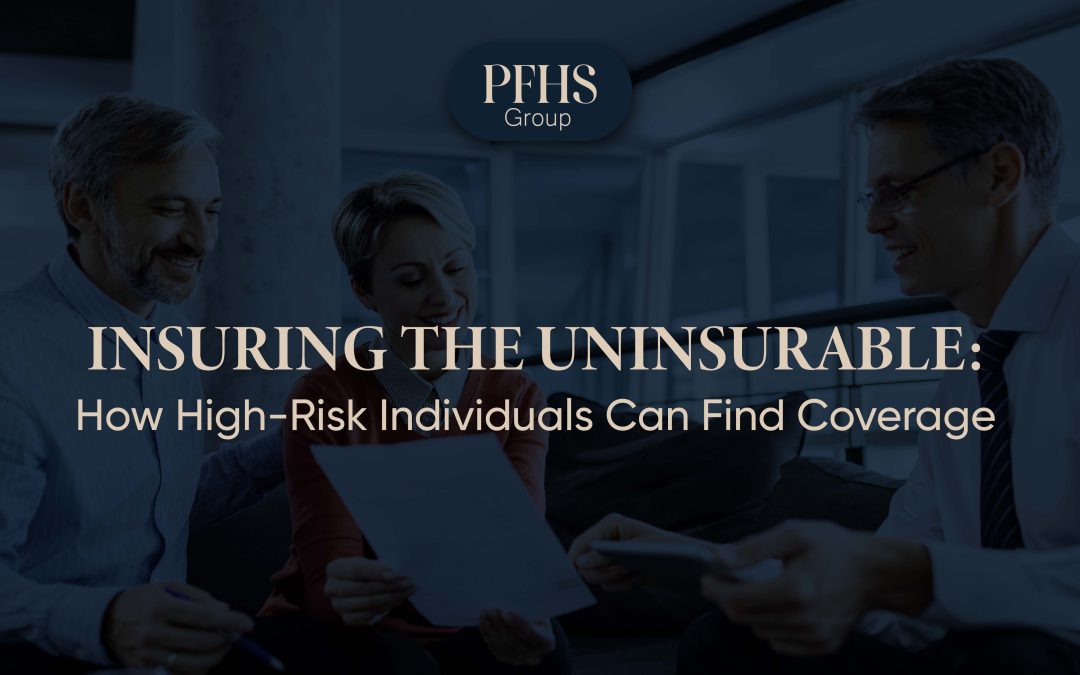Insurance is a crucial component of financial security, protecting against unforeseen events. However, finding adequate insurance coverage can be daunting for individuals deemed high-risk due to pre-existing conditions, hazardous occupations, or other factors. Many insurance companies hesitate to cover those they consider “uninsurable.” However, there is hope. This blog post will explore options for high-risk individuals to obtain the coverage they need and deserve, ensuring their financial protection and peace of mind.
- High-Risk Health Insurance Pools:
High-risk health insurance pools can be a lifeline for individuals with pre-existing medical conditions. These pools are state-sponsored programs that provide health insurance to individuals who have been denied coverage by private insurers due to their medical history. Although premiums may be higher than standard insurance plans, high-risk pools allow those with chronic conditions to obtain essential healthcare coverage.
- Surplus Lines Insurance:
When traditional insurance providers refuse coverage to high-risk individuals, surplus lines insurance can come to the rescue. Surplus lines insurance companies specialize in providing coverage for risks that standard insurers won’t cover. While the premiums for extra lines policies can be higher, they offer tailored coverage to individuals who would otherwise be left uninsured. Working with an experienced insurance broker who can connect you with surplus line insurers is essential.
- Occupational Hazard Insurance:
Certain professions, such as firefighters, construction workers, or deep-sea divers, come with inherent risks that make it challenging to secure traditional insurance coverage. Occupational hazard insurance covers high-risk occupations, protecting against work-related accidents, injuries, or illnesses. These policies consider the unique risks associated with the job and ensure that individuals can access the coverage they need.
- State-Run Insurance Programs:
Some states have established their own insurance programs to address the needs of high-risk individuals. These programs provide coverage for individuals whose private insurers have declined due to their risk factors. These state-run insurance programs vary from state to state, but they generally offer comprehensive coverage options that cater to specific high-risk populations. Researching the insurance programs available in your state can be a worthwhile avenue to explore.
- Group Insurance Plans:
If obtaining individual coverage seems challenging, exploring group insurance plans can be a viable option. Group insurance plans, often offered through employers or professional organizations, cover a collective group of individuals. These plans tend to be more lenient towards high-risk individuals since the risk is spread across a larger pool. Joining a group that offers insurance benefits can help high-risk individuals find the coverage they need at more affordable rates.
Conclusion:
Being labelled “uninsurable” should not mean being left without insurance protection. High-risk individuals have options, even if traditional insurers hesitate to provide coverage. There are pathways to obtaining the necessary coverage, from high-risk health insurance pools and surplus lines insurance to occupation-specific range and state-run programs. It’s crucial to explore these alternative avenues and seek the assistance of insurance brokers or experts who specialize in working with high-risk individuals. Everyone deserves the opportunity to protect their financial well-being, regardless of their risk profile. With determination and proper research, high-risk individuals can find the insurance coverage they need, providing them with the peace of mind they deserve.

